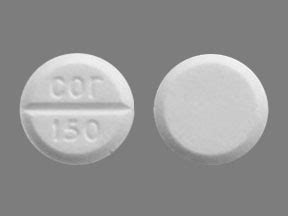Intro
Discover Cyproheptadine side effects, including allergic reactions, drowsiness, and weight gain, and learn about interactions, warnings, and precautions for safe usage.
Cyproheptadine is a medication that has been widely used for its antihistamine and antiserotonin properties. It is commonly prescribed for the treatment of allergic reactions, itching, and hives, as well as for the management of serotonin-related disorders such as anorexia nervosa and migraine headaches. Despite its effectiveness, cyproheptadine can cause a range of side effects, some of which can be severe and debilitating. In this article, we will delve into the potential side effects of cyproheptadine, exploring the common and rare adverse reactions, as well as the factors that can increase the risk of experiencing these effects.
The importance of understanding the side effects of cyproheptadine cannot be overstated. As with any medication, it is crucial to weigh the benefits of treatment against the potential risks, and to be aware of the signs and symptoms that may indicate an adverse reaction. By doing so, individuals can take steps to minimize their risk of experiencing side effects, and can seek medical attention promptly if they occur. Furthermore, healthcare providers can use this information to inform their prescribing decisions, and to provide patients with the guidance and support they need to manage their treatment safely and effectively.
Cyproheptadine is a complex medication with a range of mechanisms of action, and its side effects can be influenced by a variety of factors, including the dose and duration of treatment, individual patient characteristics, and the presence of underlying medical conditions. As we explore the potential side effects of cyproheptadine, it is essential to consider these factors, and to approach the topic with a nuanced and informed perspective. By doing so, we can gain a deeper understanding of the risks and benefits associated with this medication, and can make informed decisions about its use.
Cyproheptadine Side Effects Overview

Common Side Effects of Cyproheptadine
The common side effects of cyproheptadine can be categorized into several groups, including: * Central nervous system effects: drowsiness, dizziness, headache, and fatigue * Gastrointestinal effects: dry mouth, nausea, vomiting, and changes in appetite and weight * Cardiovascular effects: changes in blood pressure, cardiac arrhythmias, and palpitations * Dermatological effects: itching, rash, and urticaria It is essential to note that the severity and frequency of these side effects can vary widely depending on the individual patient and the specific circumstances of treatment.Severe Side Effects of Cyproheptadine

Rare Side Effects of Cyproheptadine
In addition to the common and severe side effects, cyproheptadine can cause a range of rare and unusual adverse reactions. These include: * Endocrine effects: changes in thyroid function, adrenal insufficiency, and Cushing's syndrome * Ophthalmological effects: blurred vision, double vision, and optic neuritis * Hepatic effects: elevated liver enzymes, hepatitis, and liver failure * Renal effects: changes in urine output, acute kidney injury, and nephrotic syndrome It is essential to note that the risk of experiencing these rare side effects can be influenced by a range of factors, including the dose and duration of treatment, individual patient characteristics, and the presence of underlying medical conditions.Cyproheptadine Interactions and Contraindications

Cyproheptadine Contraindications
Cyproheptadine is contraindicated in patients with: * Hypersensitivity to cyproheptadine or other antihistamines * Narrow-angle glaucoma * Urinary retention * Prostatic hypertrophy * Asthma * Chronic obstructive pulmonary disease (COPD) It is essential to note that the use of cyproheptadine in these patients can increase the risk of severe side effects, and can worsen underlying medical conditions.Cyproheptadine Dosage and Administration

Cyproheptadine Administration Routes
Cyproheptadine can be administered via several routes, including: * Oral: tablets, capsules, or liquid formulations * Parenteral: intravenous or intramuscular injections * Topical: creams, ointments, or gels It is essential to note that the choice of administration route can influence the onset and duration of action, as well as the risk of side effects.Cyproheptadine Mechanism of Action

Cyproheptadine Pharmacokinetics
The pharmacokinetics of cyproheptadine can be influenced by a range of factors, including: * Absorption: rapid absorption after oral administration, with peak plasma concentrations achieved within 2-3 hours * Distribution: widespread distribution throughout the body, with high concentrations in the liver, kidneys, and brain * Metabolism: extensive hepatic metabolism, with several metabolites formed * Excretion: primarily excreted in the urine, with a half-life of 8-10 hours It is essential to note that the pharmacokinetics of cyproheptadine can be influenced by individual patient characteristics, such as age, sex, and renal or hepatic function.Cyproheptadine Uses and Benefits

Cyproheptadine in Special Populations
The use of cyproheptadine in special populations, such as children, elderly patients, and patients with renal or hepatic impairment, requires careful consideration. These patients may be at increased risk of side effects, and may require dose adjustments or alternative treatments.What are the most common side effects of cyproheptadine?
+The most common side effects of cyproheptadine include drowsiness, dizziness, and dry mouth, which can occur in up to 50% of patients.
Can cyproheptadine be used in children?
+Cyproheptadine can be used in children, but requires careful consideration and dose adjustments to minimize the risk of side effects.
What are the contraindications for cyproheptadine?
+Cyproheptadine is contraindicated in patients with hypersensitivity to cyproheptadine or other antihistamines, narrow-angle glaucoma, urinary retention, prostatic hypertrophy, asthma, and COPD.
Can cyproheptadine be used in patients with renal or hepatic impairment?
+Cyproheptadine can be used in patients with renal or hepatic impairment, but requires careful consideration and dose adjustments to minimize the risk of side effects.
What are the potential interactions between cyproheptadine and other medications?
+Cyproheptadine can interact with a range of medications, including antihistamines, antidepressants, antipsychotics, and opioids, and requires careful consideration to minimize the risk of adverse reactions.
In conclusion, cyproheptadine is a medication with a range of uses and benefits, but also carries a risk of side effects. By understanding the potential side effects, interactions, and contraindications of cyproheptadine, individuals can take steps to minimize their risk and ensure safe and effective treatment. We encourage readers to share their experiences and ask questions about cyproheptadine, and to seek medical attention promptly if they experience any side effects or adverse reactions.
